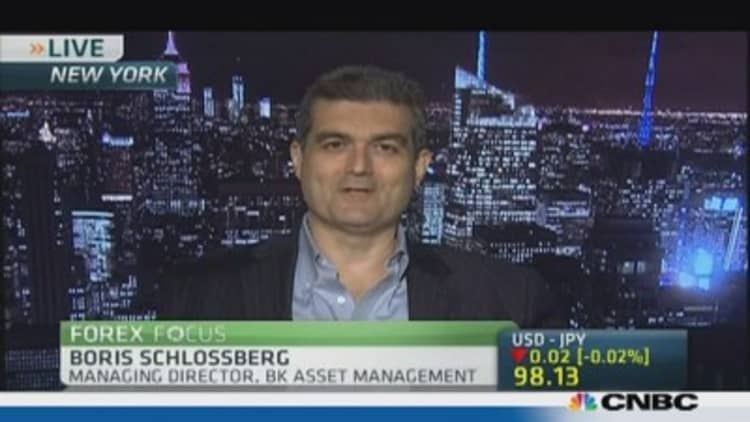
The market is just too dangerous to trade amid the political stalemate in Washington, analysts told CNBC.
"We go up, we go down, there's absolutely no continuity one way or the other and it's very difficult to make any sort of positional bets because every single hour we change sentiment based on what the new headline is," said Boris Schlossberg, managing director of BK Asset Management, on CNBC Asia's Squawk Box.
"The only take-away [from the news] is that it's incredibly treacherous to trade right now," he added.
Stocks on Wall Street closed higher Thursday, while the U.S. dollar index rose to a two-week high on news that Republicans had proposed a six-week debt-ceiling increase to avoid default.
(Read More: 'Good meeting' but no 'determination' yet: White House)
However, shortly thereafter reports that President Barack Obama had rejected the deal prompted sharp declines in U.S. stock futures markets, which were later pared following reports that Obama had not fully rejected the deal.
Asian markets enjoyed a relief rally Friday following Wall Street's strong performance but traders remained cautious as they digested mixed signals out of Washington.
(Read More: Most Americans see debt ceiling as'serious problem'—poll)
"It's all up in the air right now. We don't really know what is going to happen. The market is reacting to the news as it comes out and we really want to gather information and see what happens into next week," said Chris Tedder, research analyst at FOREX.com.
"It might be a chance to take a breather, reassess your position and reenter come next week," he added.
Kathy Lien, managing director of FX strategy for BK Asset Management, said the cautious reaction in the currency markets to news of possible progress on a deal, in contrast to the equity market rally, was a sign that there is more volatility to come.
The greenback was bought against the Japanese yen, but was virtually unchanged against other major currencies, she said.
(Read More: Dollar rises on hopes of US debt ceiling deal)
"The price action in the equity markets [Thursday] tells us that investors are excited about the prospect of a temporary increase in the U.S. borrowing limit. However, currency traders don't feel as enthusiastic because they believe the short-term reprieve does not reduce the risk of owning U.S. assets," she said.
Peter Boockvar, chief market analyst at economic advisory firm The Lindsey Group also warned that there was too much uncertainty in the markets right now.
"To me there is now monetary uncertainty, on top of fiscal uncertainty...and earnings growth is continuing to slow [in the U.S.]...this leads me to believe now is a very good time to be raising cash and not getting aggressive with risky assets," he said.
He said he expected volatility to continue for some time once markets realize that even if a temporary deal is reached, the political wrangling would not be over.
(Read More: Fidelity sells off short-term US debt ahead of ceiling)
"The question for markets is not the knee-jerk reaction on the potential of the deal, but whether there is any follow through on that or not," he said.
"We have to wait another six weeks [if a deal to extend the debt ceiling is reached] and see whether that time is well spent...I think the market is going to assume that it's probably not and we're going to have to deal with this again in a couple of weeks," he added.
— By CNBC's Katie Holliday: Follow her on Twitter @hollidaykatie


